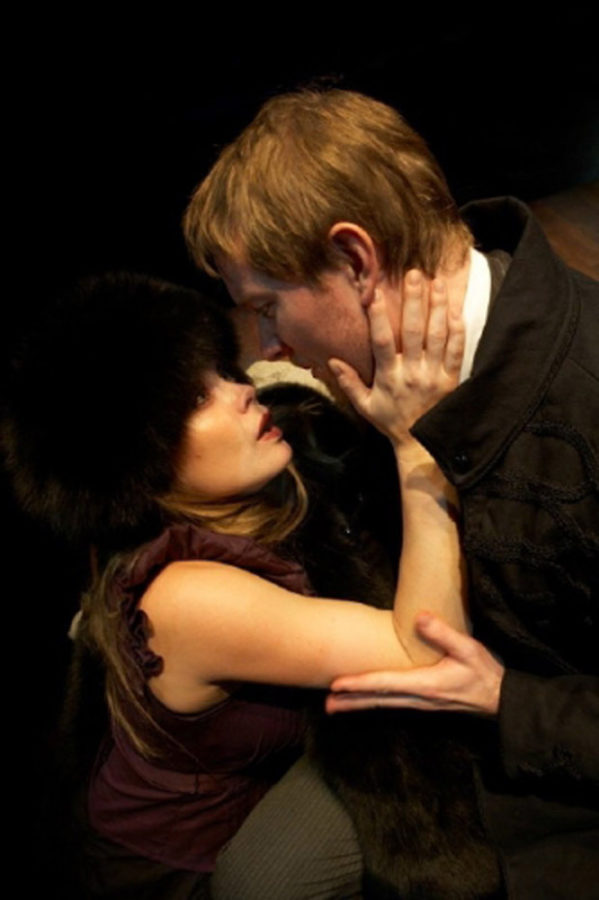To condense Fyodor Dostoevsky’s The Brothers Karamazov, a 776-page novel, into a three-hour play is no small task. First of all, the work has to be translated both from its original language and its original form. Brothers also follows the lives of a huge number of characters in great detail, and its fame means that everyone has his own interpretation. Fortunately, Lookingglass Theatre’s world premiere overcomes many of these challenges, using the theater’s unique form to connect people to The Brothers Karamazov in a new and interesting way.
The story centers around the Karamazov brothers and their drunken, greedy, lustful father. The eldest, Dmitri is an officer and an heir to many of his father’s baser indulgences. Despite his engagement to the self-sacrificing Katerina, he competes with his father for the love of Grushenka, a willful and tempestuous woman. Ivan, the intellectual middle brother, has inherited his father’s pride and greed. He loves Katerina and is tormented by the notion that God would create a world filled with so many cruel men. Alyosha is the youngest son, a noble monk who perhaps has inherited only his father’s passion, which he directs towards living a good and faithful life. He is every man’s confidant and helper, and runs from person to person, desperately trying to prevent tragedy.
One major challenge in transforming such a famous epic into a play is appeasing both audience members who have and have not read the book. This production manages to do just that, skipping over enough material to make the play coherent to first-timers while still maintaining the central themes and plot lines. The plot—part psychological study, part mystery—centers around parricide. Thematically, the play discusses faith in an unjust world and how to live in it honorably. Unfortunately for Dostoevsky die-hards, the play barely touches on subplots and minor themes that may have taken up whole chapters in the book.
However, the production has merit beyond successfully adapting the novel. The acting in particular passes the test of audience reaction; depending on the moment, hands reached for tissues or attempted to stifle laughter. The lead actors make long, complex speeches seem natural, and they clearly understand the intricacies of their characters. Despite the characters’ respective vices, one cannot help but sympathize with them. The more minor players have strong performances as well. Captain Snegiryov, played by Steve Key, particularly stands out. In his first scene it is especially difficult not to sympathize with his suffering.
The production is made all the more interesting and impressive by the mixing of the old and the new in its props, costumes, and score. Modern artifacts are scattered about the play, from a set of plastic glasses to the rock music playing throughout the show. Oddly enough, these strange historical anachronisms do not interrupt the flow of the story. Instead, they give the audience a deeper sense of the character or scene.
Another effective element of the production is its unusual stage design. The production takes place in a black box theater, with the audience almost completely circling the stage. The sparse set allows the actors to transform one area into another and lets the audience see what is going on from every angle. For instance, a table and set of chairs change from a restaurant to a dining room by use of different hanging lamps that drop down as the audience looks on. Perhaps most incredible, however, is a revolving room in the corner of the theater that spins both to change from one scene to the next, and also rotates continuously to show the audience a scene from different perspectives.
The Brothers Karamazov is not without its flaws. Occasionally the modern elements seem jarring, and sometimes actors momentarily stumbled over lines. However, Karamazov is currently in preview mode; hopefully, the rehearsal process will smooth out these few kinks in an otherwise excellent production.










